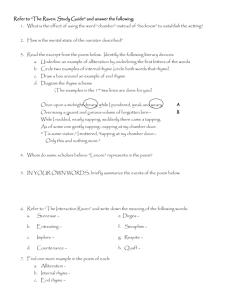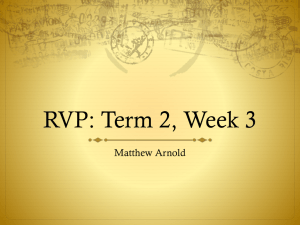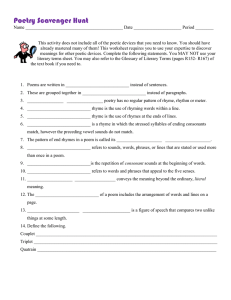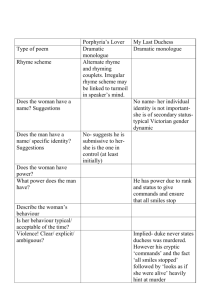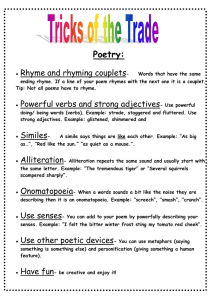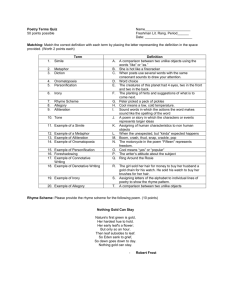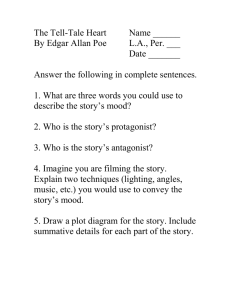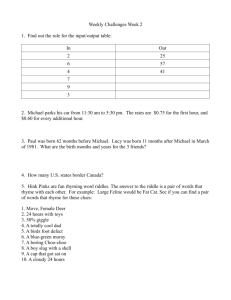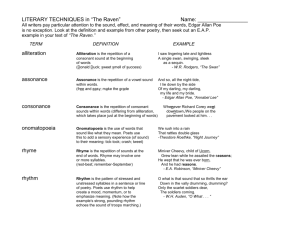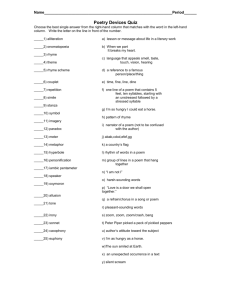Poetic Terms-Definitions poetic_terms
advertisement
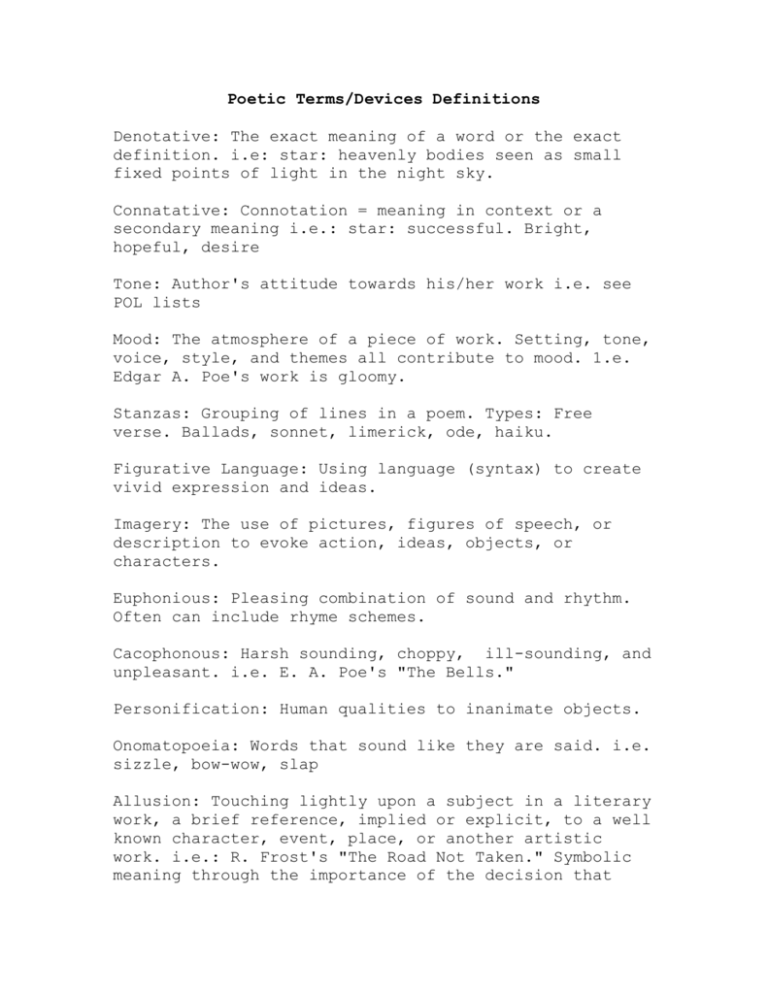
Poetic Terms/Devices Definitions Denotative: The exact meaning of a word or the exact definition. i.e: star: heavenly bodies seen as small fixed points of light in the night sky. Connatative: Connotation = meaning in context or a secondary meaning i.e.: star: successful. Bright, hopeful, desire Tone: Author's attitude towards his/her work i.e. see POL lists Mood: The atmosphere of a piece of work. Setting, tone, voice, style, and themes all contribute to mood. 1.e. Edgar A. Poe's work is gloomy. Stanzas: Grouping of lines in a poem. Types: Free verse. Ballads, sonnet, limerick, ode, haiku. Figurative Language: Using language (syntax) to create vivid expression and ideas. Imagery: The use of pictures, figures of speech, or description to evoke action, ideas, objects, or characters. Euphonious: Pleasing combination of sound and rhythm. Often can include rhyme schemes. Cacophonous: Harsh sounding, choppy, ill-sounding, and unpleasant. i.e. E. A. Poe's "The Bells." Personification: Human qualities to inanimate objects. Onomatopoeia: Words that sound like they are said. i.e. sizzle, bow-wow, slap Allusion: Touching lightly upon a subject in a literary work, a brief reference, implied or explicit, to a well known character, event, place, or another artistic work. i.e.: R. Frost's "The Road Not Taken." Symbolic meaning through the importance of the decision that needs to be made. i.e. James Joyce's Ulysses mirrors Homer's Odyssey. Internal Rhyme: Rhymes within the same line of the poem. Oxymoron: A phrase made up of opposite meanings. i.e. Passive aggressive. Colloquial Language: Slang or informal language. Lowlevel/everyday vocabulary. i.e. "Hold on a minute." "Word." Similes: Uses like or as to make a comparison Metaphors: Doesn't use like or as to make a comparison. i.e. writing is a sweaty occupation (adj). My rose (n). Billy's tummy is a pink balloon. Diction: arrangement of language to create Alliteration: Rhyme/repetition of consonants i.e. mast/mist. Assonance: Rhyming of vowels. i.e. Stay/fray.
